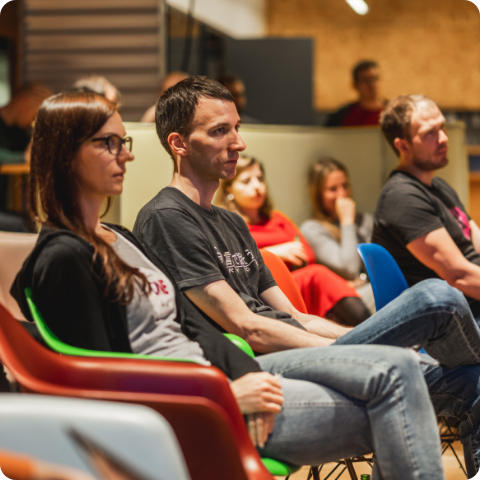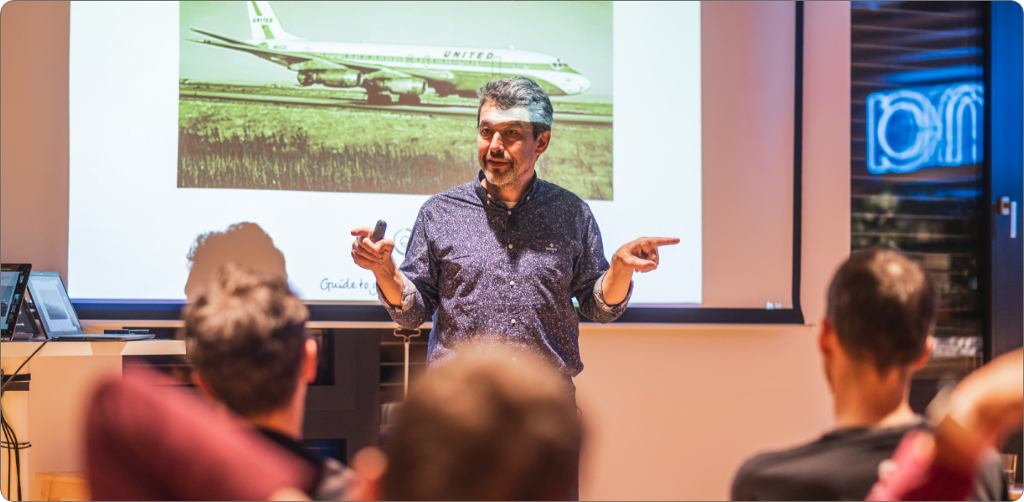What do astronauts, military units, and your team all have in common?
All need to practice clear, effective communication to achieve their goals — and avoid nasty accidents.
If you’re familiar with the infamous Tenerife airport disaster of 1977, where a simple misunderstanding between two Boeing 747 passenger jets and air traffic control resulted in 583 fatalities, you know communication can be as serious as life and death.
Back on the ground, team activities and even acquisitions and mergers go wrong because of miscommunications. So how can we steer clear of these common pitfalls, and work on our weaker points without discouraging one another?
We explored this topic in our latest Focus session with none other than Radvan Bahbouh. He began researching in this area after 1992, incidentally the worst year in Czechoslovakia’s aviation history. In this one year, they witnessed 10 aircraft accidents and 18 casualties. The main cause of these tragedies? Miscommunication between the crew and plane.
Radvan has a seemingly endless list of achievements in this area, from his more than 30-year involvement in space research, to developing the original sociomapping concept (for which he received the Order of Merit from the Chief of the General Staff, General Ales Opata), to being former Head of Psychology at Charles University, to leading as CEO at QED Group (CZECH 100 BEST 2019).

When Radvan began his research, military forces were searching for how to catch the earliest warning signs of miscommunication. Since humans have been piloting planes and launching into orbit, they’ve had disagreements and even aggressive conflicts while flying. But as we learned, there are ways o reduce these miscommunications.
Feedback: more than unpleasant noise
According to Radvan, a key point of Crew Management Systems used on flights isn’t to set strict standards of communication, but to include debriefing, or retrospection, in the process. In our own teams we can use these principles by setting clear goals and briefing before beginning a project, or even diving into our work in the morning, then debriefing after a project or timeframe.
These debriefs help us see where something may have gone wrong on an unsuccessful project, but also focus on what went right, to continue in a positive direction on future attempts. As Radvan put it, “We should learn not only from our mistakes, but from our excellence.” Debriefing can also increase the effectiveness of communication by up to 25%.
Radvan shared many approaches to debriefing, one being methods of shaping. Here, the receiver gets information about which direction they should go when attempting a similar goal again. This could look like giving praise for what went right, and focusing on the positive actions that should be repeated in the future.
His own preference for giving feedback is the Plus and Delta method. Here, you give praise for what went well and what could be repeated, while also providing feedback on what could be done differently the next time. He also shared his own debriefing chart, which follows through a process of shaping, preventing, creating an action plan, and confirmation.

Ataccommunicators
We had a chance to chat with some of the Ataccamers who joined the session in person to hear their key takeaways from the session.
Our Business Development Specialist Ermek Moldoshova said one particular example of shaping struck her the most. In the example, Radvan showed a side-by-side view of two handwriting exercises his children completed for school. In the first exercise, the worst attempts were highlighted, while in the second her best attempts were circled.
“On the first one we’re putting the attention on what’s wrong, and the other one points out the best examples. And for me the lightbulb moment was that feedback is always associated with something bad. Anytime someone says “I’m going to give you some feedback,” you feel nervous and are waiting for something bad. And I think it’s good to rethink feedback and see it’s not always about something bad but it can be something positive. For me it’s something simple but I’d never really thought of it, and I want to try to not always use ‘feedback’ in terms of something negative.”
Solution Consultant Ondrej Mach said his key takeaway was the idea of shaping when giving feedback to others.
In his own work, he says “I really want to find out how people react to the delta plus method in real settings.”
Want to attend events like our Focus sessions and meet field experts with your peers? Join our team!
See what positions are open at jobs.ataccama.com and learn a bit more about our team. Hope to meet you soon!
Houston, We Have a Miscommunication was originally published in Life at Ataccama on Medium, where people are continuing the conversation by highlighting and responding to this story.

